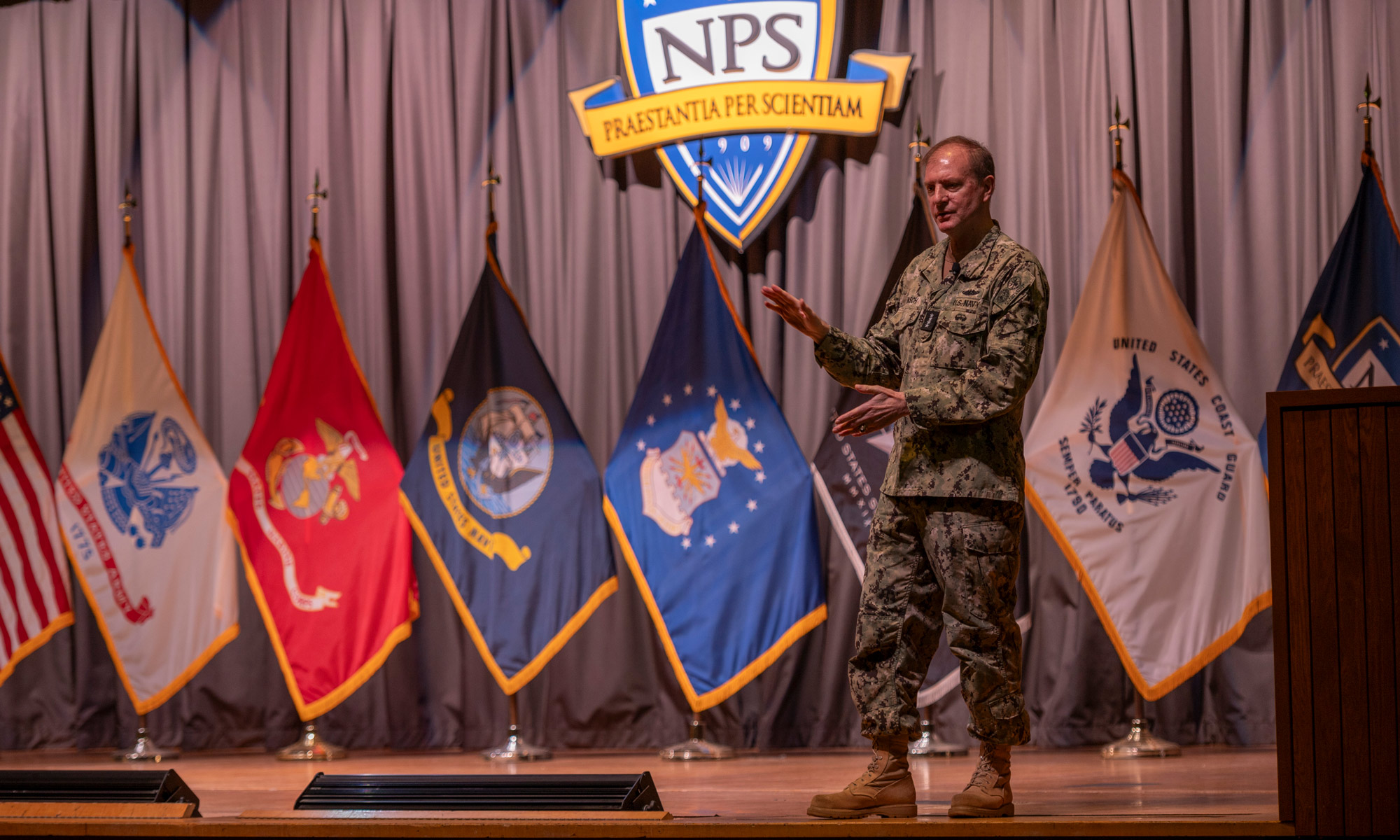The Naval Postgraduate School (NPS) recently hosted U.S. Navy Adm. Stuart Munsch, commander, U.S. Naval Forces Europe, U.S. Naval Forces Africa, and Allied Joint Forces Command, Naples, for a thought-provoking discussion, Feb. 4, 2025, as the latest distinguished speaker to address NPS students in the Secretary of the Navy Guest Lecture series.
Munsch’s lecture focused on the evolving nature of warfare, particularly in the era of great power competition. He outlined ways to gain an advantage over adversaries by utilizing greater proficiency and competency to outthink and outfight the adversary.
One of the key takeaways from the discussion was the role of NPS in developing this intellectual advantage, by highlighting NPS’s unique ability to bring together students, faculty, alumni, and the broader Silicon Valley innovation ecosystem to drive learning and military advancements.
“It’s the people. That’s our real inherent advantage,” remarked Munsch. “The joint warfighting concept is built around that concept. The people are our one and inalienable advantage we have over adversaries.”
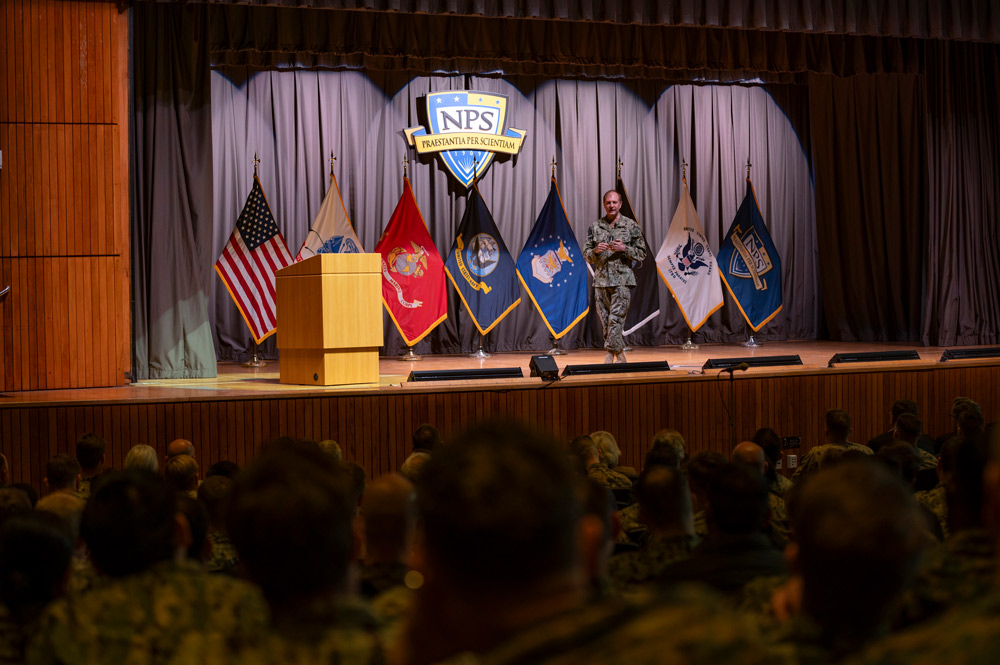
U.S. Navy photo by Mass Communications Specialist 2nd Class Janiel Adames
During his visit, he also met with NPS students and faculty to hear updates on classified research and innovative projects supporting U.S. and allied naval forces in the European and African areas of operations.
Munsch commented in his remarks on how NPS fosters asymmetry in warfare by enabling its U.S. and international military students to explore innovative solutions together in ways unmatched by other institutions. He stressed the importance of a synergistic approach, combining the efforts of operators, engineers, financiers, and all-domain warriors to focus and accelerate solutions, rapid adaptation, and effective decision-making.
Following the lecture, the floor was opened for attendees to ask questions where Munsch addressed pressing issues such as lessons learned from the war in Ukraine, the growing strategic importance of Africa, and the evolving role of non-commissioned officers (NCO) in modern conflicts.
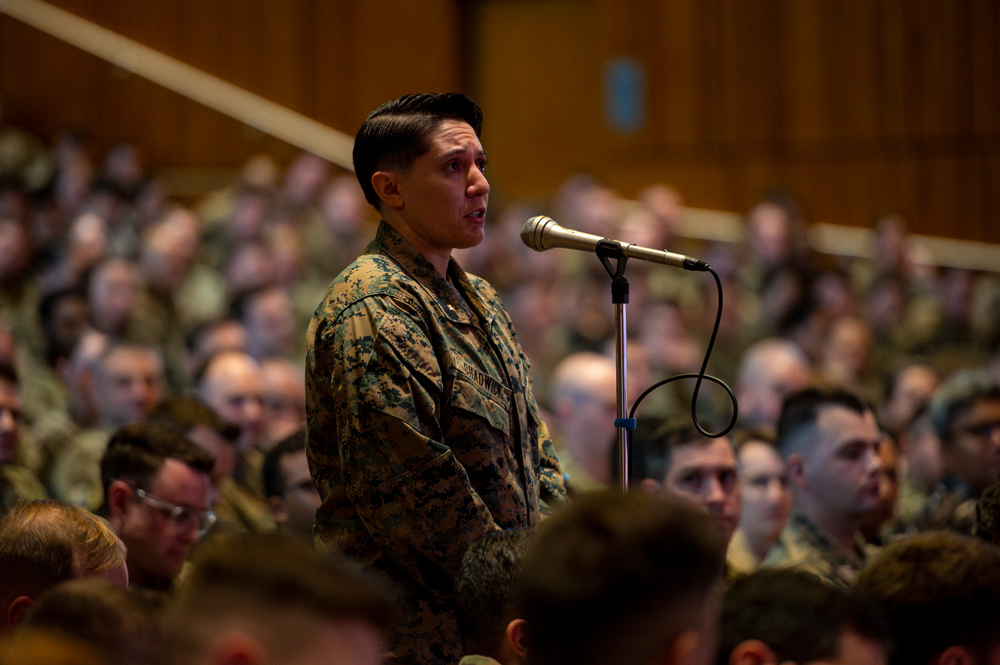
Munsch highlighted the critical role of leaders and specifically NCOs in the U.S. military, stressing how they dynamically adapt – often the key difference in battle – and their potential beyond their rank.
“When you look at collar devices, see that as an indicator not of a person’s maximum ability, but of their minimum ability,” he explained. He emphasized the responsibility of leaders to nurture and develop that untapped potential, saying, “It’s all our jobs to mature that and foster that for the subsequent pay grade.”
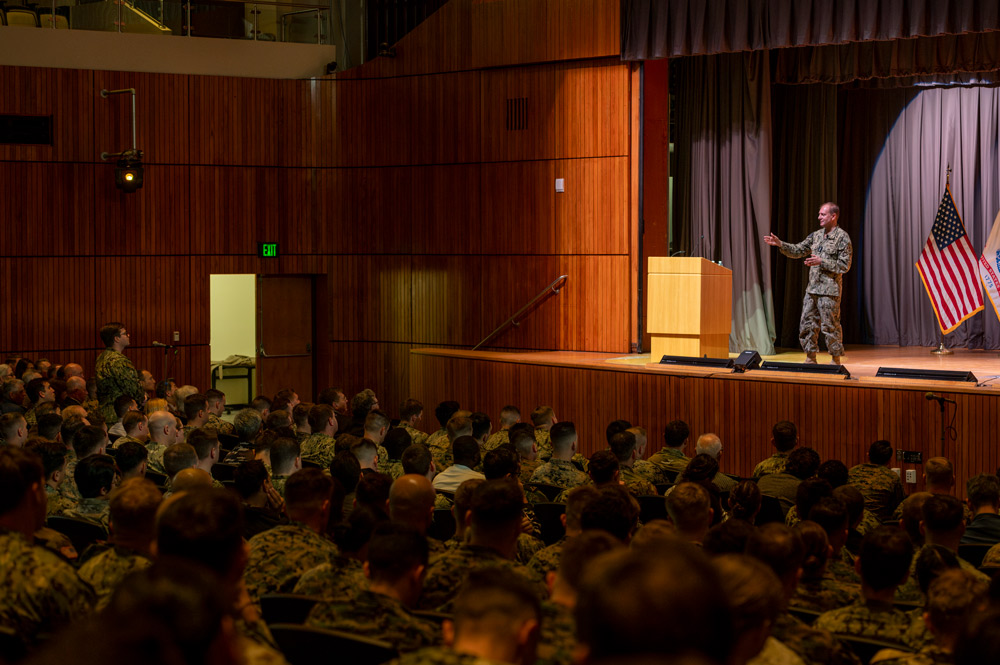
Munsch also reflected on the challenges and strengths of operating with allies and partners, particularly when balancing various national interests. Quoting Winston Churchill, he remarked, “there is only one thing worse than fighting with allies, and that is fighting without them.”
In his closing remarks, Adm. Munsch left NPS students with a powerful message.
“All of us here have at least one thing in common – we were called,” Munsch stated. “We were called to sacrifice, to dedicate, to serve. In your years [of service], may you be the shield of freedom and the sword of justice. May you be of sharp of mind and skilled in battle. May your foes fear you, may your friends trust you, and may your fellow countrymen respect you. And may you always celebrate others who've made the same commitment. To sacrifice, dedicate and serve.”
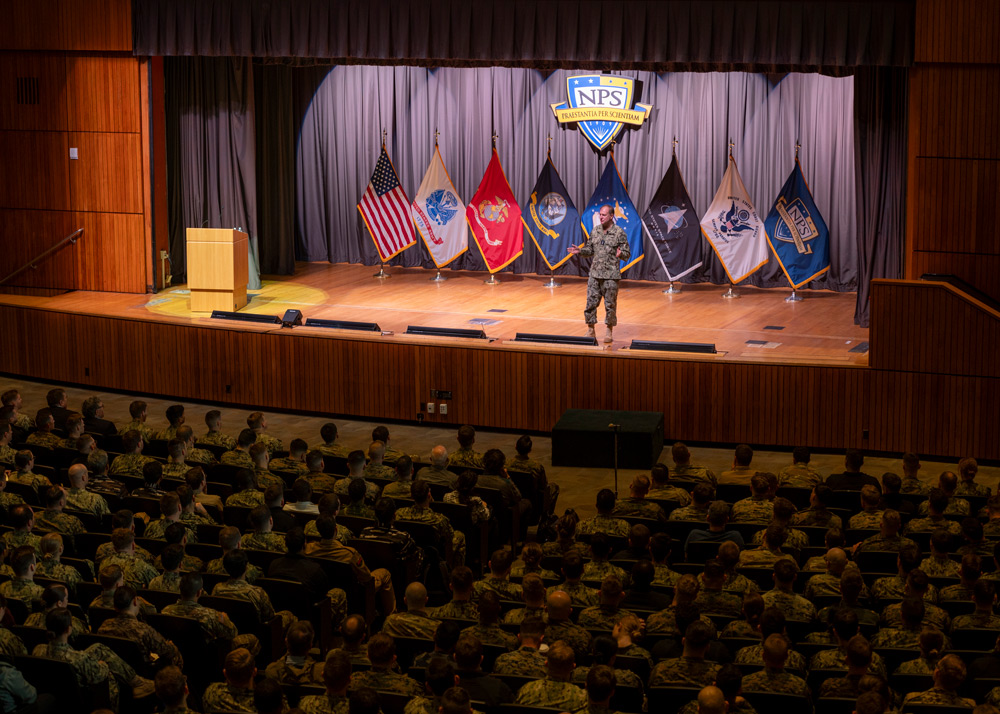
Munsch’s visit underscored the importance of NPS in developing future military leaders and fostering cutting-edge research to maintain our competitive edge and decisive maritime advantage.


